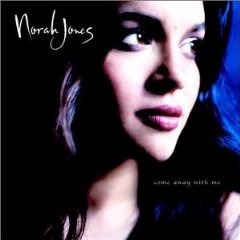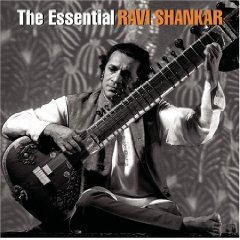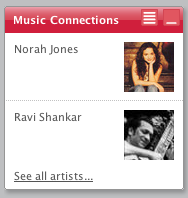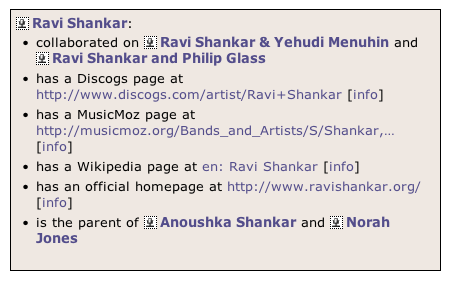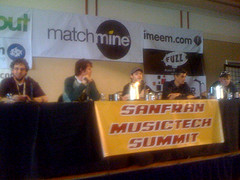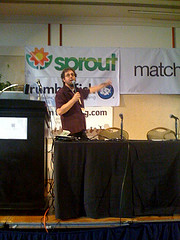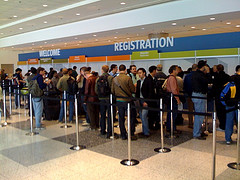It's great that Michael is making this data available for everyone to see and explore. We have some similar data from our autotagger. Doug has put together a nifty web for exploring this data - hopefully in the next couple of months we can do the same as Michael and make it available for all to use and explore. Doug keeps threatening to start a blog, so perhaps he'll write about it sometime in the near future.
Sunday May 18, 2008
Friday May 16, 2008
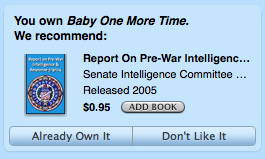 This is one of my favorite freakomendations. iTunes suggests that if
you like "Baby One More Time" by Britney Spears, you might like the "Report on Pre-War Intelligence on Iraq". This
recommendation just doesn't seem to make any sense in any context.
iTunes has lots of users so presumably they have lots of data and
Britney Spears is a very popular artist - so this can't be a cold start
problem. Something went awry somewhere. Or perhaps there's some reason - there is a Britney Spears / Bob Dole connection - or maybe the lyrics are some sort of subtle commentary on America's attitude toward Iraq. Hit me baby one more time indeed.
This is one of my favorite freakomendations. iTunes suggests that if
you like "Baby One More Time" by Britney Spears, you might like the "Report on Pre-War Intelligence on Iraq". This
recommendation just doesn't seem to make any sense in any context.
iTunes has lots of users so presumably they have lots of data and
Britney Spears is a very popular artist - so this can't be a cold start
problem. Something went awry somewhere. Or perhaps there's some reason - there is a Britney Spears / Bob Dole connection - or maybe the lyrics are some sort of subtle commentary on America's attitude toward Iraq. Hit me baby one more time indeed.

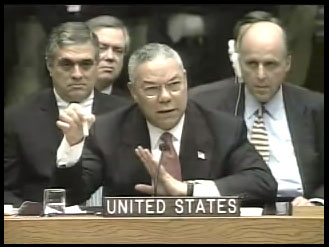
Thursday May 15, 2008
Some wine/music recommendations:
- CABERNET SAUVIGNON: All Along the Watchtower by Jimi Hendrix; Honky-Tonk Woman by The Rolling Stones; Live and Let Die by Paul McCartney; Won't Get Fooled Again by The Who.
- CHARDONNAY: Atomic by Blondie; Rock DJ by Robbie Williams; What's Love Got to do With It by Tina Turner; Spinning Around by Kylie Minogue.
- SHIRAZ: Puccini's Nessun Dorma as sung by Luciano Pavarotti; Orinoco Flow by Enya; Chariots of Fire by Vangelis; Canon by Johann Pachelbel.
- MERLOT: Sitting On The Dock Of The Bay by Otis Redding; Easy by Lionel Ritchie; Over The Rainbow by Eva Cassidy; Heartbeats by Jose Gonzalez.
In about two weeks, each of my 10 freakomendation posts seems to have spawned more than 100 copies in the various aggregators, republishers and splogs. This propagation will likely continue. This suggests that 99% of the RSS feeds out there are just re-broadcasting content. Only 1% of content is original. This makes me want to cry.
Wednesday May 14, 2008
At first blush, this looks like a bad recommendation - the Starbucks queen seems quite removed from the Indian Master - it is hard to imagine any kind of connection between these two artists, but the connection is actually quite close. Ravi Shankar is the father of Norah Jones. This little tidbit - the paternity of Norah Jones - turns what seems to be a bad recommendation into a credible recommendation.
Often we get recommendations like this - where they seem to make no sense, but with a little information the recommendations can become good, or at least reasonable.
Recently last.fm added a 'connections' tab to the set of artist tabs, so now it is easier to find these types of musical connections.
Musicbrainz has this data too.
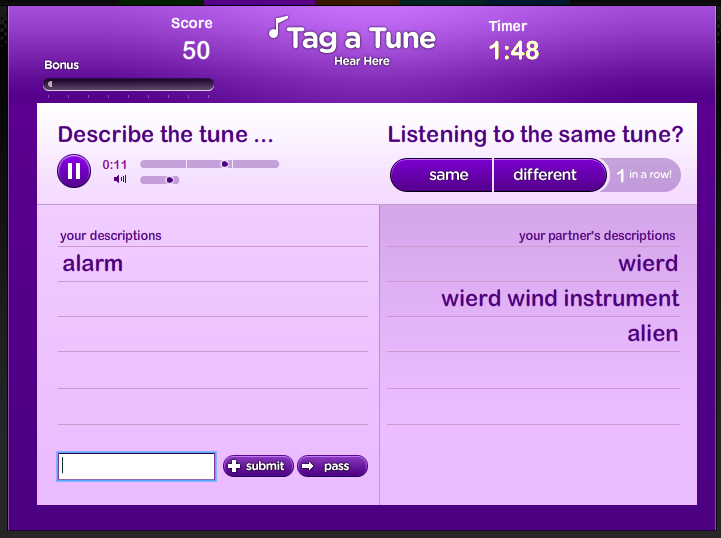
Tuesday May 13, 2008
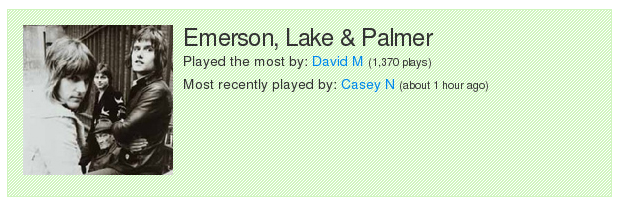
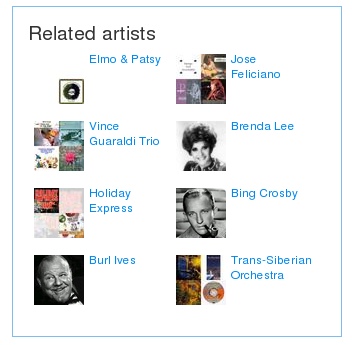
Monday May 12, 2008
Music is really long tail - in 2007, 450,344 of the 570,000 albums sold were purchased less than 100 times. 1,000 albums accounted for 50% of all album sales. The music industry had its biggest sales week since they started keeping records, with 58 million units sold in the last week of 2007. The previous record was 47 million during the last week of 2006. 13% of all album sales come from American Idol and the Disney franchises.There's lots more data in there. Definitely worth a good look. - Thanks OscarCD sales are down 31% since 2004, but digital music sales are up 490%. Surprisingly, Vinyl sales are coming back - they grew 15% in 2007 and are up 70% in the first 3 months of this year. Mostly in indie vinyl. 1 out of 4 albums are purchased in a non-traditional retail store (i.e. internet, or at a concert). 80,000 albums were released in 2007 844 million digital tracks sold in 2007, 1% of all digital tracks accounted for 80% of all track sales.
Sunday May 11, 2008
http://api.echonest.com/lookup?api_key=MY_KEY&names=the+beatlesOnce you get an artist ID you can get recommendations with this request:
http://api.echonest.com/recommendations?api_key=MY_KEY&ids=AR6XZ861187FB4CECDSome recommendations using the new Echo Nest Recommendation API Seed Artist of Jimi Hendrix:
- Cream,
- HendriX
- Stevie Ray Vaughan
- Jeff Beck
- The Jimi Hendrix Experience
- Eric Clapton
- Funkadelic
- Buddy Miles
- Michael Hill
- Doyle Bramhall II
- LED
- Deep Purple
- Bonham
- Page and Plant
- Black Sabbath
- Aerosmith
- The Who
- Bad Company
- AC/DC
- Cream
- Miles David and John Coltrane
- Miles Davis Sextet
- Miles Davis Quintet
- John Coltrane
- Charlie Parker
- Kenny Dorham
- Wayne Shorter
- Wynton Marsalis
- Bill Evans
- Thelonious Monk
- Badfinger
- George Harrison
- The Hollies
- The Animals
- John Lennon and Paul McCartney
- Paul McCartney
- The Beau Brummels
- The fourmost
- Peter and Gordon
- George Martin
- Rick Wakeman
- Emerson, Lake & Palmer
- Patrick Moraz
- Yes
- Gentle Giant
- Steve Hackett
- King Crimson
- Colosseum
- Tony Banks
- Graham Bond
java -jar hudson.war
If Hudson works as well as it seemed to in the JavaOne talk, then I think we'll be using this as our build and integration tool for Project Aura.
Thursday May 08, 2008
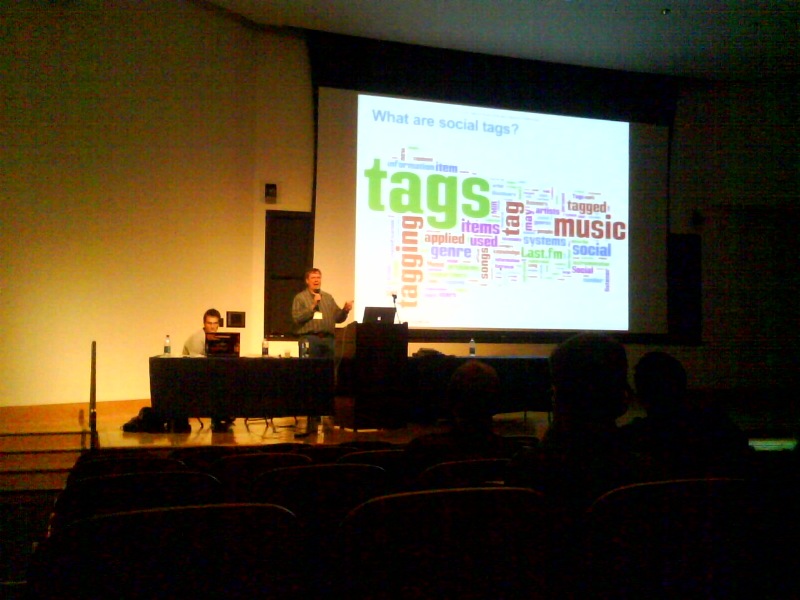
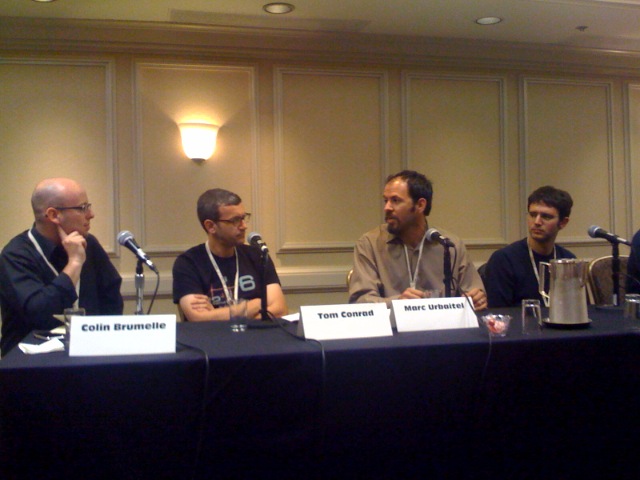
Panelists:
- Colin Brumelle - Moderator
- Tom Conrad - CTO Pandora
- Marc Urbaitel - CTO In-Ticketing
- Shaun Haber - Warner Bros. Records - Director of operations, using Drupal to build an artist platform.
- Jeremy Riney - Project Playlist, CTO, Founder
- Jack Moffit - Xiph, Chesspark - IM, gaming
Marc - uses php - quicker turnaround time, lets them be much more nimble. Open source is good.
Shaun - open source CMS - chose Drupal: a big reason is active developer community.
Jeremy - also uses Drupal - Paylist is the largest Drupal user with 25 million active users.
Tom - were on Java, Oracle, Jetty servlets due to legacy reasons. Oracle was a disaster, so they ported it all to postgres. Re-implemented Oracle procesdures at the Java language. Some core routines in C, - huge memcachd - 200 servers, 2000 interactions per second. 64 bits linux, intel CPUs, the shiny frontend is flash. They didn't have anyone who knows about flash. Used openLazlo to build the application using javascript and their framework and compile it down to flash. Tom says Lazlo is a great piece of software.
Jack - Perl, then Python, with webware frameworks, mysql, postgres, now Jango (rails-like python), they run everything on Amazon EC2 and S3. Wrote lots of Javascript - use all scriptaculous, prototype and others.
Colin: Is EC2 the future?
Jack - Went through CO-LO hell. Was hard to provision new hardware. On Amazon, they can type one command and get 10 more machines. Jack is very happy with EC2, S3. Jeremy was concerned with complexity but Jack says it was not too hard.
Tom: If they were starting today, they would be considering cloud computing like EC2. The hardest part to scale horizontally is the database. Risk become predicting the future. How do you provision just the right amount of servers. This would become a guessing game.
Marc uses cloud computing to do scaling testing (buying lots of tickets at once).
Tom - also the cloud is useful for data recovery - use the cloud to serve as the failover. Pandora decided to do their own CDN. The save much money they by doing it themselves.
Tom says don't by Foundry load balancers
Questions from Derick of CDBaby - Tells the story about how he rewrote CD Baby for PHP and Ruby On Rails. After 2 years of frustration, he threw it all away. Nothing to do with Rails - but keeping the two systems (PHP and Rails) alive was hard. Derick also lauds EC2. Tom does say that you are still paying a margin to Amazon for this so it could cost you more than doing it yourself.
Tom talks about "test driven development". They can rip their system apart and put it back together and be confident that it will work because of their tests
First topic is the well-worn topic of how we navigate the intellectual property minefield of music. How can companies make money while still compensating artists. I wish the panel would focus a bit more about technology and less on rights and IP. There's a separate legal track. As K7lim says "this is a kindergarten discussion of IP policy."
Tim Westegren calls for better, simpler design is necessary to engage with listeners, especially new listeners. "Simplicity brings people in" says Aza.
Brian asks: "What is the Future?" - Ty Roberts talks about music product. He's interested in 'music packaging' - augmenting the simple MP3 with all of the ancillary metadata (album art, reviews and bios). Aza suggests 'continuity of experience'. Eliminate the facebook.iTunes silos - get rid of having to worry about where your music is coming from. Michael says it is 'Simplicity'
Tim points out that radio has always been popular. He says that people don't want to spend alot of time administrating their listening experience. He suggest that music will be everywhere, supporting by advertising. Once this is in place, there will be lots of ways that people can use and interact with the music.
Aza points to the Kindle as a good example of where things should go with music. "Feels like free" is key - whether it is ad supported or some other model.
Discussion about the "metadata problem".
Tim offers advice to artists - add a new member of the band - a non-musician - to be the marketing person to get the band exposure on the 'nets.
Monday May 05, 2008
This blog copyright 2010 by plamere
